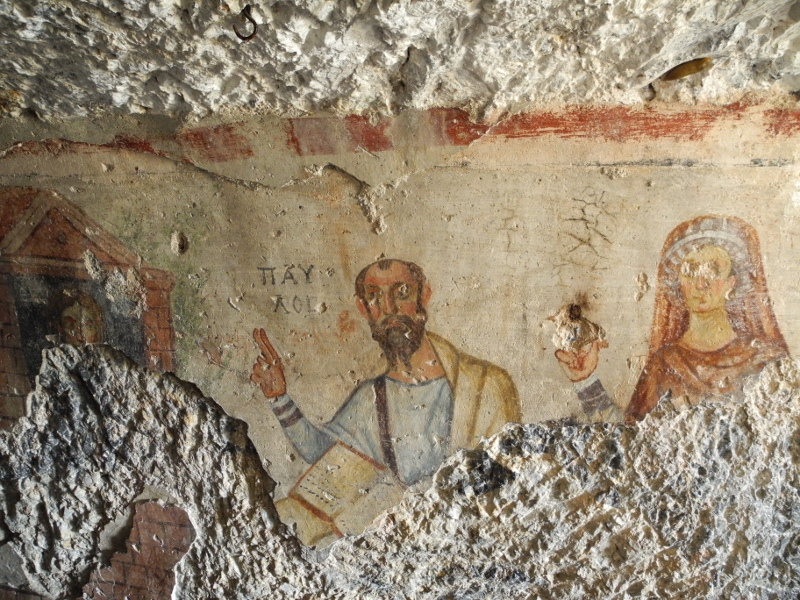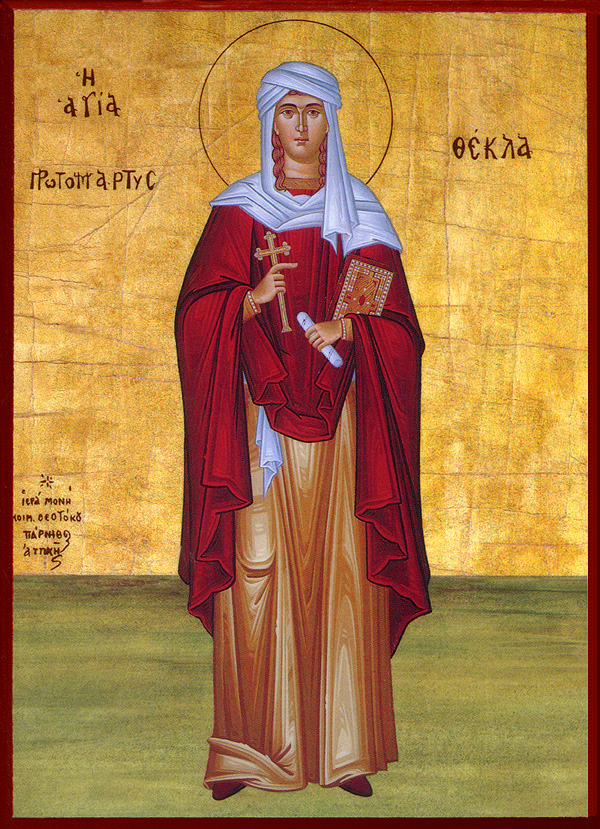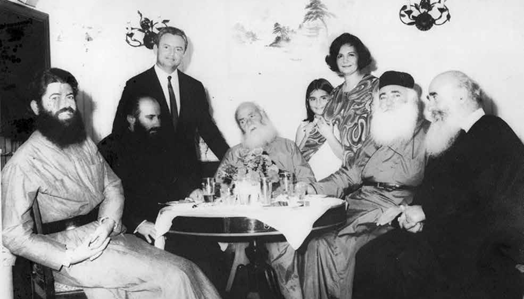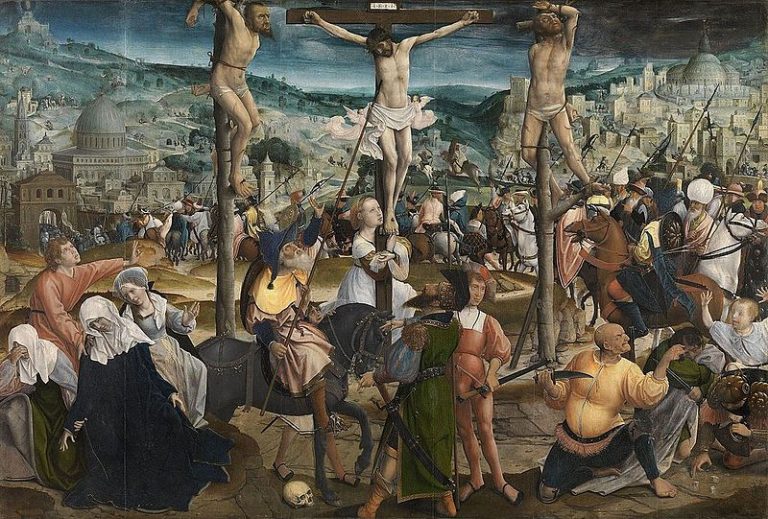The Apostle Thecla and the missionary spirit of Christians
Thekla came from Iconium, where she lived. Her parents were prominent Greek pagans. St. Nicodemus informs us that she was engaged – at the age of 18 – to a pagan named Thamyrin. It was in Iconium that she first met the Apostle to the Gentiles, who was conducting missionary tours and was hosted by his disciple Onesiphorus. In the house church that was established, the sublime Paul preached the Word of God. Multitudes of people were captivated by his teaching and embraced faith in Christ. Thus the lovely Thecla, the neighbour of Onesiphorus, ‘heard from the doorway the sweet words of the blessed Paul, with such pleasure and desire that she coveted food and drink and all her necessities of life, and even coveted her mother and her betrothed’.
(Nicodemus Athonite, Synaxaristis, “Orthodox Kypseli”, vol. 1, Thessaloniki 2003, p. 194). The teachings of Christ were constantly emerging in the mind of His genuine disciple and her heart listened with submissive love to His voice: “My father’s friend the mother is not worthy of me; and my daughter’s friend the son is not worthy of me.” (Matt. 10:37). Επιθύμησε η Θέκλα να γίνει μιμήτρια των Αποστόλων, που εγκατέλειψαν τις οικογένειές τους και τον μέχρι τότε τρόπο ζωής τους και συστοιχήθηκαν με τον Ιησού. Ένιωσε βαθιά της την κλήση του Διδασκάλου, όπως και οι μαθητές στην λίμνη Γεννησαρέτ που συγκλονίστηκαν από το περιστατικό της θαυμαστής αλιείας. Αντήχησε και στα δικά της αυτιά η ρήση του Ιησού προς τον Πέτρο: «ἀπὸ τοῦ νῦν ἀνθρώπους ἔσῃ ζωγρῶν» (Λουκ. 5:10) . Αποχωρίστηκε μητέρα και άνδρα όπως οι Απόστολοι, οι οποίοι κατά τον ευαγγελιστή Λουκά «ἀφέντες ἅπαντα ἠκολούθησαν αὐτῷ» (Λουκ. 5:11) και μάλιστα –κατά τον Ματθαίο-χωρίς ίχνος αναβλητικότητας: «οἱ δὲ εὐθέως ἀφέντες τὸ πλοῖον καὶ τὸν πατέρα αὐτῶν ἠκολούθησαν αὐτῷ» (Ματθ. 4:22). Στο σημείο αυτό αξίζει να παραθέσουμε το σχόλιο που κάνει ο ιερός Χρυσόστομος εστιάζοντας στο επίρρημα εὐθέως: «Προσέξτε όμως και την πίστη τους και την υπακοή τους. Όταν άκουσαν την πρόσκλησή Του βρισκόντουσαν στο μέσον της εργασίας τους και γνωρίζετε πόσο αχόρταγο είναι το ψάρεμα -ειδικά μετά από μια τέτοια ψαριά. Και όμως δεν ανέβαλαν, δεν άφησαν για αργότερα, δεν είπαν να επιστρέψουμε στο σπίτι να συνεννοηθούμε με τους δικούς μας. Τα άφησαν όλα και τον ακολούθησαν, τέτοια υπακοή ζητεί ο Χριστός από εμάς, ούτε δευτερόλεπτο αναβολή να μην κάνουμε, ακόμη και αν μας βιάζει κάτι από τα ευτελή απαραίτητα. Γι’ αυτό και για κάποιον άλλον, ο οποίος τον πλησίασε και ζήτησε να θάψει πρώτα τον πατέρα του, ούτε αυτό δεν τον άφησε να πράξει τόνισε ότι από όλα όσα έχουμε να κάνουμε πρέπει να προτιμήσουμε να τον ακολουθήσουμε» (Ιωάννη Χρυσοστόμου, Ομιλία ΙΔ΄, εκδ.«Γρηγόριος ο Παλαμάς», Ε.Π.Ε., τ.9, Θεσσαλονίκη 1978, σσ. 447-448).

Adopting what was said and done above, Thecla sided with Uncle Paul, visiting him even in prison, entering secretly at night to be indoctrinated. Since then she never ceased to accompany Paul, to accompany him on the rough paths of the evangelization of the Gentiles, the martyrdom, the bloody, the tear and sweat-filled apostolic paths… Here, then, is a great trait of the man of missionary zeal; the discipleship, the appetite and the passion one harbors to know in depth the Christian doctrine, the Word of God, to have the plan of the Divine Economy revealed to him and he, in turn, to transmit it, to offer it as it is offered to him. Of course, in our Orthodox faith, experience and not only knowledge alone is of indisputable importance for the spiritual life. Yet, if we do not study, if we do not know, if we do not empathize, how can we experience? In Thecla’s heart the desire for knowledge together with the divine experiences became a powerful flame that ignited her whole being. Thus, she did not hesitate to be by Paul’s side, even in the most dangerous circumstances. They were arrested and subjected to torture. First Paul, after being brutally beaten, was expelled from Iconium. Then Thecla was thrown into the fire, but miraculously remained unharmed. Their paths parted, but their hearts beat rhythmically attuned to the frequency of Divine Love and its propagation. The distance was temporary, for Thecla was unable to bear the absence of her teacher and consequently the absence of the Word of God. She hastened to him and together with Onesiphorus they accompanied him to Antioch. There an additional trial awaited the bride of Christ, such as God permits His children to be afflicted with, that His glory may be revealed; such as He uses to prove that nothing of earthly things holds a man who loves Christ hostage, but obedience to His will, without conditions or limits, even when his reason is opposed. For the truth of the matter, as they entered the city, the beautiful in appearance and wonderful in soul, Thecla, charmed her lord, Alexander, who – impressed as he was – asked to make her his wife. The reaction, both of Paul and Thecla, was of course negative, which angered the lord and prompted him to publicly attack the girl, attempting to disgrace her. The saint resisted. She was not charmed by the ephemeral challenge and the attractive proposal of marriage; she was given in body and heart to Christ and consequently to the spreading of His work. Unable to face the shameful consequences of his heroic rejection of Thecla, Alexander handed her over to the ruler of Antioch and he in turn subjected her to terrible torture. She was thrown into a pit of wild beasts, such as lions and bears, but surprisingly none attacked her. The Saint, despite all her love for Christ and the sacrifices she made, was not given the opportunity to be baptized. Spotting, during the time of torture, a pit of water, she seized the opportunity, entered it and was baptized. Finally, they tied Thecla to two bulls and drove them in the opposite direction with the intention of dismembering her, but according to Divine counsel, the bulls did not act as they should, but remained stubbornly still.
Her executioners and persecutors were forced to abandon their misanthropic and contrary tactics and set her free.

Here, my brothers and sisters, is another characteristic of the soul that is possessed by the spirit of missionary zeal: patience in trials and perseverance in the work, since, as the Apostle to the Gentiles Paul points out, “all who would seek godly living in Christ are persecuted” (2 Timothy 3:12). And St. Chrysostom interprets: “For there is no Christian who walks the path of virtue without sorrow, suffering and temptation; for how could it be otherwise for him who walks the narrow and sorrowful path? For him who has heard that “in the world you have heard that there is sorrow?” If in those days Job said, ‘Temptation is the life of man on earth,’ how much more so today?” And the holy Father continues, “From my experience, you may learn that there is no man who struggles with the wicked and is not in tribulation. It is not possible for one who is fighting to live in a hole; it is not possible for one who is struggling to be fragrant. Let none of the athletes therefore seek comfort, let none be in mirth. The present things are struggle, war, sorrow, distress, trial, the stage of struggles. Other are the times of comfort; this is the time of sweat, this is the time of pain. No one who has taken off his clothes and anointed himself with oil and prepared to fight seeks comfort, and if we seek comfort then why have we made the beginning of the struggle?” (John Chrysostom, Homily H, ed.) The Holy and Apostolic Thecla returned to Iconium and then headed for Seleucia. She devoted the rest of her life to teaching the Gospel, especially to unbelievers, as well as to the ascetic life until her peaceful death. The study of her holy life reminds us that the missionary spirit is not romanticism and philosophy, but practice, a daily and unceasing struggle. This is because it is accompanied by the complete “abandonment” of our “being” to God’s plan and His will, by love for God above all and by all, by an equal zeal both for discipleship and for spreading the Gospel, by patience in tribulations and constancy in work. And all this to make His life our life and our life His life, imitating the example of Jesus and the Saints. The memory of St. Thecla is commemorated September 24 of each year.
Sound d’. Tachy bias. Paul’s concubine, as a pure soul, and a firstborn, in a woman of piety, loving Christ, for thou of piety didst wing thy way to lust, and didst suffer above nature, Isapostle Thecla, to thee the Panictim’s bride didst marry.





